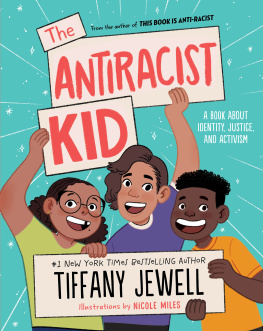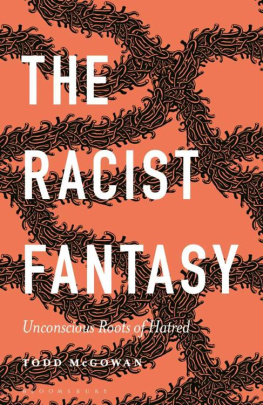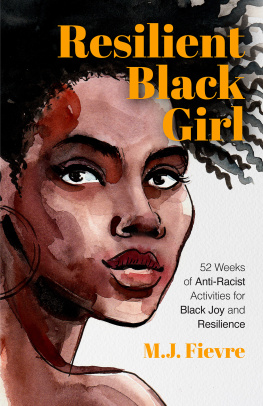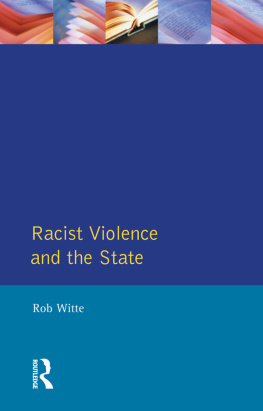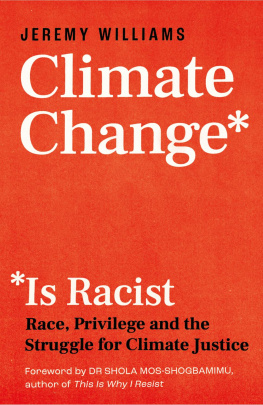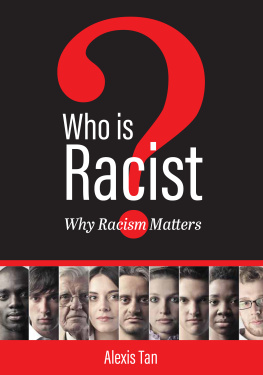Leland Harper is associate professor of philosophy at Siena Heights University. His research focuses on philosophy of religion and philosophy of race, particularly issues in miracles and religious experience, deism, racial solidarity, and racism. He is the author of Multiverse Deism: Shifting Perspectives of God and the World (2020), as well as articles in Res Philosophica, Global Discourse: An Interdisciplinary Journal of Current Affairs, Humanities Bulletin, Forum Philosophicum, the International Journal of Philosophy and Theology, and several edited volumes. He is also the editor of The Crisis of American Democracy: Essays on a Failing Institution (2022) and is the editor of the Philosophy of Race series at Vernon Press. He is the organizer of the Great Lakes Philosophy Conference, an annual international philosophy conference hosted by Siena Heights University. Leland grew up in Vancouver, British Columbia, and received a BA in general studies from Kwantlen Polytechnic University, an MA in philosophy from Ryerson University (though this university is currently undergoing a name change to Toronto Metropolitan University as part of its process of truth and reconciliation), and a PhD in philosophy from the University of Birmingham. In his spare time, he operates Leland Harper Consulting, a diversity, equity, and inclusion consulting firm based in Toronto, spends time with his wife and two children, and can be found cheering on the Boston Red Sox and the Los Angeles Clippers.
Jennifer Kling is assistant professor of philosophy and director of the Center for Legal Studies at the University of Colorado, Colorado Springs. Her research focuses on moral and political philosophy, particularly issues in war and peace, self- and other-defense, international relations, protest, philosophy of race, and feminism. She is the author of War Refugees: Risk, Justice, and Moral Responsibility (2019) and coauthor of The Philosophy of Protest:Fighting for Justice Without Going to War (with Megan Mitchell, 2021). She has also authored articles in Radical Philosophy Review, Res Philosophica, Journal of Global Ethics, the Routledge Handbook of Pacifism and Non-violence, several edited volumes, and is the editor of Pacifism, Politics, and Feminism: Intersections and Innovations (2019). She is also the executive director of Concerned Philosophers for Peace, the largest and most active organization of professional philosophers in North America involved in the analysis of the causes of war and prospects for peace. Jennifer grew up in Indiana and received a BA in English and philosophy from the University of North Carolina at Chapel Hill, an MA in philosophy from the University of Colorado at Boulder, and a PhD in philosophy from the University of North Carolina at Chapel Hill. In her spare time, she practices the sport of Olympic fencing and does aerial fabrics, takes her husky on long hikes, and is hopelessly addicted to skittles.
Completing any book project, let alone a co-authored book project, often requires a lot of support from a number of different corners. Completing this book was no different. As the initial ideas for this book came out of an essay that we originally wrote for a special issue of Res Philosophica, we must thank the journal and the special editors of the Mass Incarceration and Racial Justice Issue, Scott Berman and Chad Flanders, for the initial opportunity to develop and present some of these ideas in 2020. Additionally, thanks to the editorial team at Lexington Books, who have supported our early careers.
Such a co-authored book would not be possible, especially during a global pandemic, were it not for some help with the logistics of being able to acquire the necessary research materials, hold virtual meetings, travel across the continent to meet face-to-face, and keep us both generally well nourished and somewhat energized throughout this entire process. Our thanks go out to the University of Colorado, Colorado Springs, the UCCS Heller Center for the Arts & Humanities, and Siena Heights University.
We would also like to thank all of our colleagues, students, anonymous reviewers, and Concerned Philosophers for Peace, for allowing us to share our ideas with you and for providing us with much needed feedback, suggestions, and guidance. We also both share a deep gratitude for our research assistant, Romello Valentine, who went above and beyond not only in helping with our research but also in contributing valuable insights and ideas during our thinking and writing sessions.
Last, but certainly not least, we would like to thank our partners and children for providing us the mental and physical time and space to carry out this work. Thank you, Patrick, Marina, Kaylee, Emmeline, and Beau for your support and understanding. Now that we are done with this, you can each have your partners and parents backuntil the next project.
This book is dedicated to all those who are working to make this world more equitable, inclusive, and just. We hope this book helps to light the way.
ACLED. A Year of Racial Justice Protests: Key Trends in Demonstrations Supporting the BLM Movement. The Armed Conflict Location & Event Data Project, 2021.
African American Health: Creating Equal Opportunities for Health. Centers for Disease Control and Prevention, July 3, 2017. https://www.cdc.gov/vitalsigns/aahealth/index.html.
Alexander, Michelle. The New Jim Crow. Ohio State Journal of Criminal Law 9, no. 1 (2011): 726.
. The New Jim Crow: Mass Incarceration in the Age of Colorblindness. New York: The New Press, 2012.
Anderson, Carol. White Rage: The Unspoken Truth of our Racial Divide. New York: Bloomsbury USA, an imprint of Bloomsbury Publishing Plc, 2016.
Anselm. Monologion. In Anselm of Canterbury: The Major Works. Translated by Davies, Brian and G. R. Evans. Oxford: Oxford University Press, 1998.
Baldwin, James. The Fire Next Time. New York: Vintage Books, 1962.
. On being White... and Other Lies. In Black on White: Black Writers on what it Means to be White, edited by Roediger, David R., 17780. New York: Schocken Books, 1998.
Basevich, Elvira. W. E. B. Du Boiss Critique of American Democracy during the Jim Crow Era: On the Limitations of Rawls and Honneth. The Journal of Political Philosophy 27, no. 3 (2019): 31840.
Bauder, David. AP Says it Will Capitalize Black but Not White. AP News, July 20, 2020. https://apnews.com/article/entertainment-cultures-race-and-ethnicity-us-news-ap-top-news-7e36c00c5af0436abc09e051261fff1f.
Bedley, Crystal. Engaging Stakeholders on the DEI Journey. Diverse: Issues in Higher Education, October 29, 2021. https://www.diverseeducation.com/opinion/article/15280707/dei.
Begnaud, David. How Citizens Turned into Saviors After Katrina Struck. CBS News, August 29, 2015. https://www.cbsnews.com/news/remembering-the-cajun-navy-10-years-after-hurricane-katrina/.
Bloch, Arthur. Murphys Law Book Two: More Reasons Why Things Go Wrong! Los Angeles: Price Stern Sloan, 1980.
Blum, Lawrence. Varieties of Racial Ills. In Im Not a Racist, but...: The Moral Quandary of Race, 5377. New York: Cornell University Press, 2002.
Boroditsky, Lera. How Language Shapes Thought: The Languages we Speak Affect our Perceptions of the World. Scientific American, February 2011.
Bourdieu, Pierre. The Field of Cultural Production: Essays on Art and Literature, edited by Johnson, Randal. New York: Columbia University Press, 1993.
Brown, Jennifer. How to be an Inclusive Leader: Your Role in Creating Cultures of Belonging Where Everyone Can Thrive



